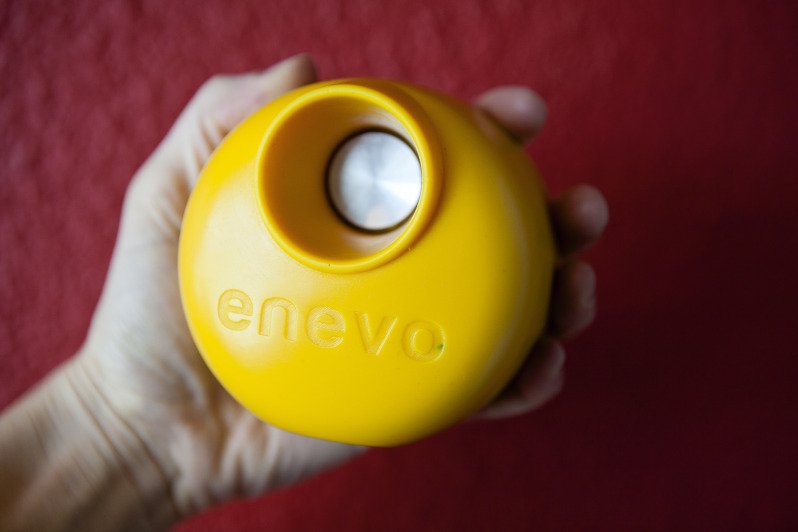Is there cash in trash?
Yes, quite a bit actually, according to analysts at the Bank of America/Merrill Lynch who last year estimated the waste management industry at $1 trillion and said it could double within the next 10 years.
Garbage isn’t exactly the sexiest area to tackle as an entrepreneur, but it’s an important part of running a city and an industry that’s reportedly ripe for change.
As a matter of fact, a recent report by Navigant Research stated that annual revenue from smart waste technology is expected to climb from $2.3 billion annually in 2014 to $6.5 billion in 2023.
One company that’s determined to pick up the pace in this space is Enevo, which offers a sensor-based system aiming to optimize waste collection and – ultimately – reduce fuel consumption.
In August this year, the Finland and US-based startup announced a $8m funding round from Earlybird, Lifeline Ventures and Finnish Industry Investment, among others, to broaden its international footprint.
Following its fresh cash injection, we caught up with Enevo founder and CEO Fredrik Kekalainen to talk trash, how the company's technology works and where it's headed next.
Sensors and sonar technology
Traditionally, municipalities and private waste management companies operate on weekly routes to pick up trash and recyclables on designated days, regardless of whether the containers are full or not, said Kekalainen.
The idea behind Enevo, founded in 2010, is to provide an alternative system that analyzes the fill-level data of waste containers in real-time so that pick-up schedules can be generated to optimize routes and minimize pointless journeys to bins that may be empty or barely full.
Essentially, it’s about collecting the most amount of materials in the least amount of time to reduce costs and emissions along the way.
At first glance, it’s easy to pass off Enevo’s battery-powered sensor as merely a huge orange button. However, there’s more to it than meets the eye.

Tapping into the ‘Internet of Things’, the wireless sensor – dubbed WE-007 – plays a huge role in Enevo’s waste monitoring service, which the company claims can save up to 50% in collection costs for its municipal, commercial and industrial customers.
“We created sensors to put inside waste containers that face down and use sonar technology to measure the fill-level,” Kekalainen told us. “Basically, it shoots sonar tech, just like a fishfinder in a fish boat, so you can see how much stuff is inside the container. We also measure temperatures and movements to detect other kinds of things happening in the container as well as its surroundings.”
Instead of working off regular schedules to collect waste and recyclable materials from containers, information collected from the sensors are sent over a cellular network for analysis and displayed on Enevo’s 24/7 web platform for customers. A list of containers to be collected can then be sent to drivers to plan an efficient route.
 “Everything is done dynamically,” explained Kekalainen (pictured right), who is originally from Finland and previously started two other tech companies.
“Everything is done dynamically,” explained Kekalainen (pictured right), who is originally from Finland and previously started two other tech companies.
Furthermore, the sensors are supposed to work with any type of container and any type of waste, including mixed materials, paper, glass, metals and fluids.
Kekalainen said Enevo currently has about 100 customers – in various stages – across 26 different countries.
“We charge customers a monthly fee, per container or site monitored. The majority are industrial/commercial and public waste companies,” he added.
“And we supply the analytics, monitoring as well as the routes to customers.”
But Enevo isn’t the only one eyeing down this lucrative market.
Dublin-headquartered SmartBin, founded in 2010, offers a similar sensor-based “intelligent monitoring solution” for waste management and claims over 100 clients in more than 30 countries.
Additionally, UK-based Big Belly is tackling this space with its solar-powered bins that claim to hold six to eight times more waste than the average street bin.
Pushing to go global
Despite reports that emerging markets are the places with the most opportunities in this space, Enevo is mostly looking to developed countries for expansion.
“We see potential in countries that have a large population with an already-existing waste/recycling management infrastructure and mature processes, such as many EU countries as well as Japan and the US,” said Kekalainen. In Europe, key markets include Germany, the UK and France, he added.
At the moment, Enevo’s team of 30 people is spread across its offices in Espoo, Finland and Leesburg, USA. The company is also starting to a build a team in Tokyo and already has a sales rep in Munich.
And where does Kekalainen see Enevo in a year?
"Well, headcount will have doubled, and we will have deployed our system from many of the pilot tests to customer cases –both from the municipal side as well as private waste and recycling collection side. We also might have raised additional funds for further expansion."
Sounds like we need to keep a close eye on them.
Featured image credit: epSos.de / Flickr Images of Enevo products courtesy of Enevo


